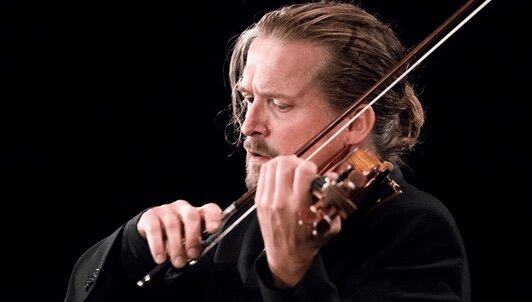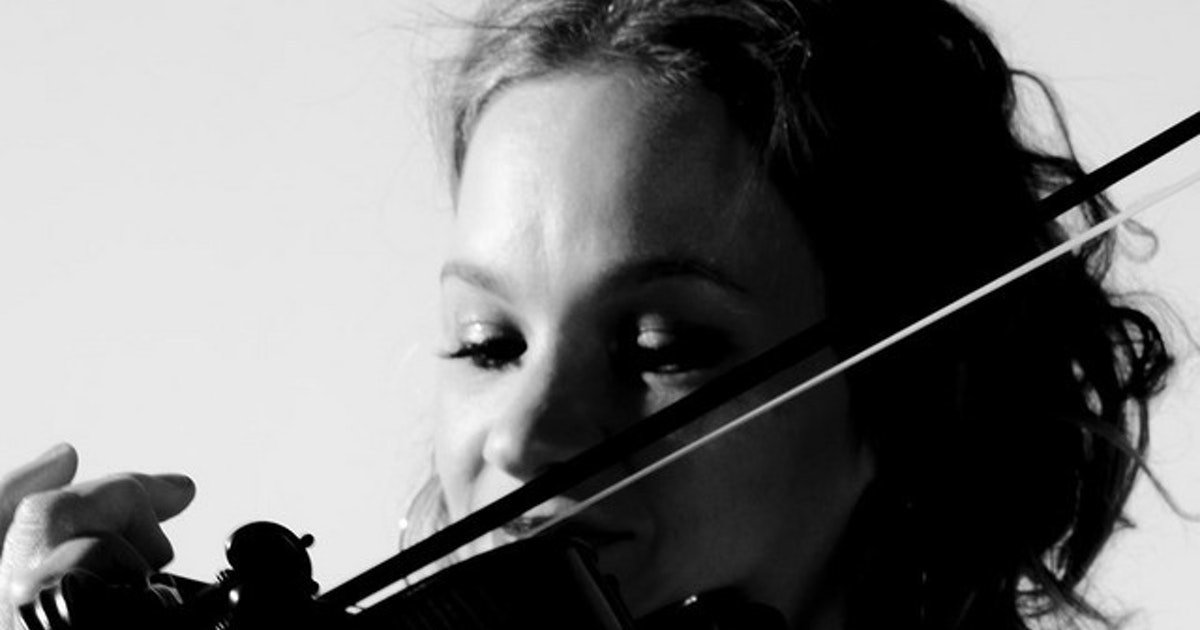Tetzlaff, Tetzlaff, Vogt

It’s been a good week for power piano trios. On Wednesday there was a marvelous performance by Joshua Bell, Steven Isserlis, and Jeremy Denk at Strathmore. Last night, the Library of Congress hosted Christian Tetzlaff, Tanja Tetzlaff (siblings), and Lars Vogt, three superlative German artists who, despite busy solo careers, make time during each season to perform and/or record together (this concert was the final one of this season’s tour). In a program of Mozart (B-flat major), Shostakovich (E minor), and Dvořák (F minor) trios, the group left its distinctive stamp on everything; the widest possible dynamic range, detailed phrasing (approaching human speech at times), and deep response to harmonic color. At the same time, they took a completely different sonic approach to each composer.
Let me get my pet peeve out of the way early on: it is a mistake to play this repertoire on a modern, nine-foot concert grand piano with the lid fully raised. Vogt was at least as careful about balance as Denk was on Wednesday, but in thick writing that pervades the Dvořák, it’s simply impossible for the poor cellist to be heard much of the time. Tanja Tetzlaff had a Guadagnini cello and a strong bow-arm, but when the whole ensemble was cranking it up, she was lost. What’s irritating about all of this is how simple the solution is.
That said, the Mozart had great charm even with the strings in the background, Vogt articulating rapid ornaments with clarity and direction. The Shostakovich felt “deeper” than it did on Wednesday; there was a Teutonic seriousness, with heavier chords in the strings, a slightly broader first-movement tempo, and almost a symphonic feeling in the slow movement. The highlight was the finale, where the threesome struck a marvelous balance between the macabre and the ironic, dancing towards the death they know is coming.
In the Dvořák, the phrase-by-phrase detail and nuance caught the ear from the first bar. Christian Tetzlaff is a rambunctious violinist who sometimes tries too hard to make things “happen,” but within the framework that had been clearly worked out by the group, his contributions always added spice. His sister was more disciplined and better at legato playing, even as she struggled against the piano. The Allegretto grazioso movement felt a bit rushed -- I couldn’t fully enjoy the gently clashing rhythms of the strings against the piano – but the slow movement was perfectly done, with aching melodies that made you draw long breaths as you listened.





